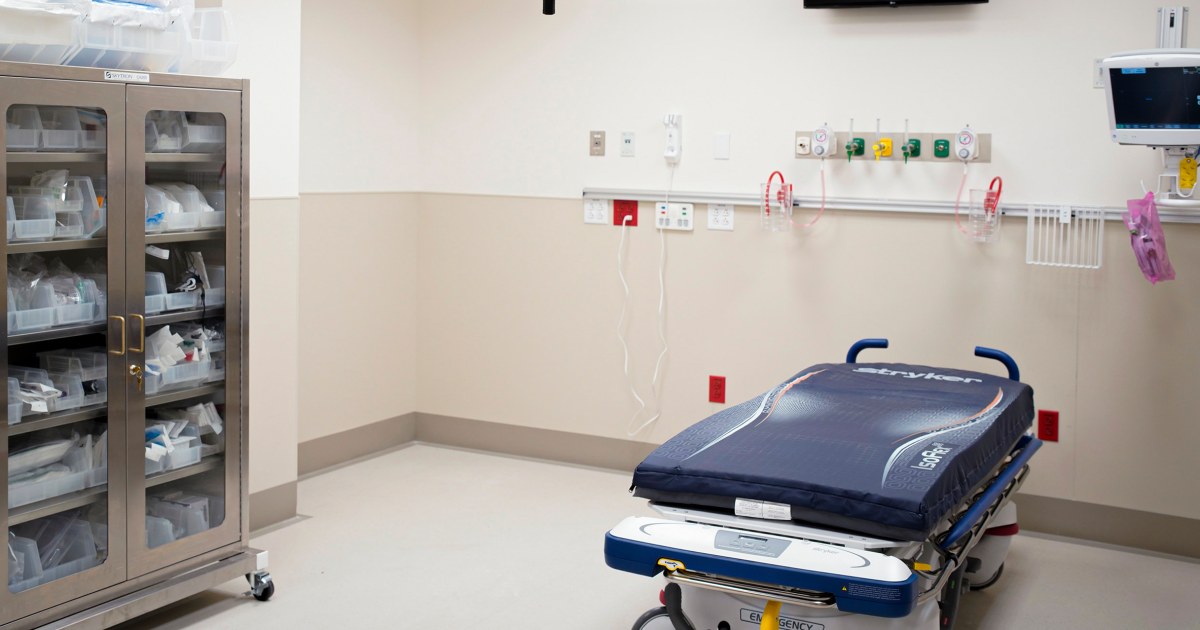
WASHINGTON — The Supreme Court on Wednesday grapples with whether provisions of Idaho’s near-total abortion ban unlawfully conflict with a federal law aimed at ensuring certain standards for emergency medical care for patients, including pregnant women.
The justices are weighing an appeal brought by Idaho officials who are contesting a lawsuit filed by the Biden administration over abortion access in emergency situations.
The state abortion law was enacted in 2020, with a provision stating it would go into effect if the Supreme Court overturned Roe v. Wade, the 1973 ruling that found women had a constitutional right to abortion.
The 2020 law, called the Defense of Life Act, went into effect in 2022 when the Supreme Court rolled back Roe.
The state law says that anyone who performs an abortion is subject to criminal penalties, including up to five years in prison. Health care professionals found to have violated the law can lose their professional licenses.
There is an exception if an abortion is necessary to protect the life of the pregnant woman.
The federal government sued, leading a federal judge in August 2022 to block the state from enforcing provisions concerning medical care that is required under the federal Emergency Medical Treatment and Labor Act (EMTALA).
The federal law, enacted in 1986, requires that patients receive appropriate emergency room care. The Biden administration argues that care should include abortions in certain situations. The law applies to any hospital that receives federal funding under the Medicare program.
In January, the Supreme Court allowed Idaho to enforce the provisions while also agreeing to hear oral arguments in the case. Other provisions of the ban are already in effect and will not be affected by how the justices rule.
The decision will affect not just Idaho but also other states, including Texas, that have enacted similar abortion bans that abortion rights advocates say clash with the federal law.
In blocking parts of the state law that conflict with federal law, U.S. District Court Judge B. Lynn Winmill described the state’s actions as putting doctors in a difficult situation.
“The doctor believes her EMTALA obligations require her to offer that abortion right now. But she also knows that all abortions are banned in Idaho. She thus finds herself on the horns of a dilemma. Which law should she violate?” he wrote.
The San Francisco-based 9th U.S. Circuit Court of Appeals briefly put Winmill’s ruling on hold in September, but subsequently allowed it to go back into effect, prompting the state officials to turn to the Supreme Court.
Solicitor General Elizabeth Prelogar, representing the Biden administration, wrote in court papers that EMTALA requires “necessary stabilizing treatment,” which in cases involving pregnant women in an emergency situation may require an abortion.
“And in those limited but critically important circumstances EMTALA requires the hospital to offer that care,” she added.
The state abortion ban’s exception for the health of the pregnant woman is too narrow, Prelogar said, as it only allows for doctors to perform abortions when the patient is at risk of death, “not merely to avoid grave harm to health.”
Dr. Jim Souza, who heads the St. Luke’s Health System in Idaho, said on a call with reporters that the system had pregnant patients with serious complications on 54 occasions last year.
After the state law went into effect, “there’s a lot of second-guessing and hand-wringing” among doctors deciding how to treat patients in those circumstances, he added. On some occasions, women are transferred to a state where abortions are legal in order to avoid potential prosecution, Souza said.
The state argues that it was only after Roe was overturned that the Biden administration said EMTALA could be interpreted to require abortions in some contexts, calling it a “nationwide abortion mandate.”
EMTALA “merely prohibits emergency rooms from turning away indigent patients with serious medical conditions,” Idaho Attorney General Raúl Labrador wrote in court papers. The law was not intended to override state laws regulating health care, he added.
Katie Daniel, a lawyer with Susan B. Anthony Pro-Life America, an anti-abortion group, said that all states that ban abortion allow pregnant women to get emergency treatment but that Biden administration officials “want to open the door” to abortions being available in a “broad array of circumstances.”
The Idaho dispute is one of two abortion cases now pending at the Supreme Court, both of which arose in the aftermath of the 2022 decision to overturn Roe v. Wade. In the other case, the court is considering a challenge that could restrict access to mifepristone, the drug most commonly used for medication abortions.